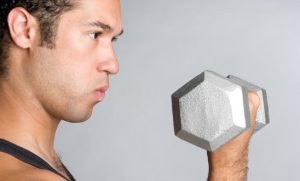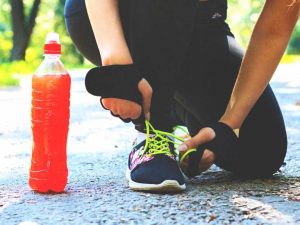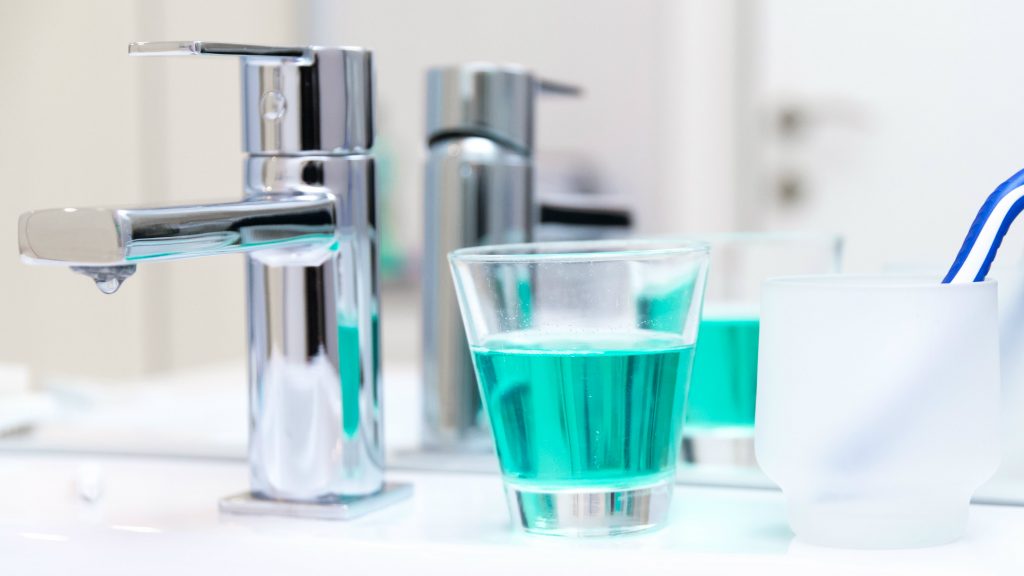Majority of people indulge in exercise primarily for health reasons. Apart from getting into shape, one of many benefits of exercise is that it lowers blood pressure. Regular exercise can help prevent high blood pressure leading onto something more sinister like type 2 diabetes, heart disease and early death among other things.
Now anyone in the habit of exercising (as little or as much) must be familiar with the fact of how dirty even the mildest of physical exertions can make you. You’ll find tons of useful articles about what you should or shouldn’t be doing after any workout to maintain optimum health, top of the list amongst these tips will be showering, change of clothes and most importantly oral hygiene.
But a recent study by a team of experts at the University of Plymouth in the UK has us all rethinking the use of anti-bacterial mouthwashes after working out.
Mouthwash or Eyewash?
According to the study, swigging mouthwash after a workout prevents or hinders the lowering of blood pressure, which is a common result of exercise on the human body. Strange, right? But if you consider the relationship of bacteria present in our mouth and our general well-being it’s pretty easy to understand.
Spokesperson for the team conducting this study, Raul Bescos, a nutritional physiologist at the University of Plymouth disclosed that the study was not even focused on the effects of mouthwash post exercise.
Exercise has long established itself as an essential tool for maintaining health and fitness, not to mention balancing out the body’s natural reactions such as lowering of our blood pressure. This is caused by the production of nitric oxide, which helps in opening and dilating blood vessels which in turn lowers blood pressure. This effect remains even hours after the exercise session is over and done with and the body has stopped producing nitric oxide- this phenomenon is called “post-exercise hypotension”.

In light of this finding, one theory the team came up with involves the bacteria living in our mouth. Nitrate is a byproduct of nitric oxide and is readily consumed by certain types of mouth bacteria. These bacteria convert nitrate into nitrite, which gets absorbed into our system when we swallow, while the rest is recycled back into nitric oxide. With this amount of nitric oxide being fed to the system it is no wonder that the blood pressure stays low even hours after a jog. To test this finding, the team used antibacterial mouthwash containing chlorhexidine.
Is Your Workout Working Out?
The test was conducted on just 23 healthy adults who ran on a treadmill twice for half an hour during the two hour test, throughout this time their blood pressure was monitored continuously. During this time the subjects were given periodic swigs of either mouthwash or a placebo; if they were given mouthwash on the first trip they received placebo on the second and vice versa.
When people took mouthwash instead of placebo, their blood pressure wasn’t lowered by as much. And after a few hours, the post-exercise effect had disappeared completely. While the mouthwash didn’t kill off bacteria in the mouth, it did seem to inhibit their ability to produce nitrite, which reduced the levels of nitrite in their saliva and blood.
These findings have been published in the Free Radical Biology and Medicine.
Most patients with high blood pressure are susceptible to gum disease, which in itself can affect their oral microbiome, though more research is needed to prove that.
Although mouthwash was never the focal point of this study, the same has been proven by other studies conducted specifically in this regard. The alarming fact is that regular use of mouthwash right after a workout might even raise blood pressure, rather than just hampering the benefits of exercise.
Mouth Breathing
Although the above finding is the collateral benefit of something else, here are a few facts which will greatly enhance your oral hygiene as well as your workouts. Heavy breathing is one of the benefits of exercising, but in the long run it also contributes to tooth decay and cavities. Breathing with an open mouth tends to dry out your mouth and reduced saliva makes it the perfect setting for the wrong kind of bacteria to thrive and cause decay.

Sports Drinks
They do have their benefits, BUT they are packed with tooth damaging sugars and acids. Use them only to help your body recover after exercise and not as a regular pick-me-up. Plus excessive use of energy drinks can have drastic effects on the overall state of your oral health.

Photo Credit: Quinn Martin





